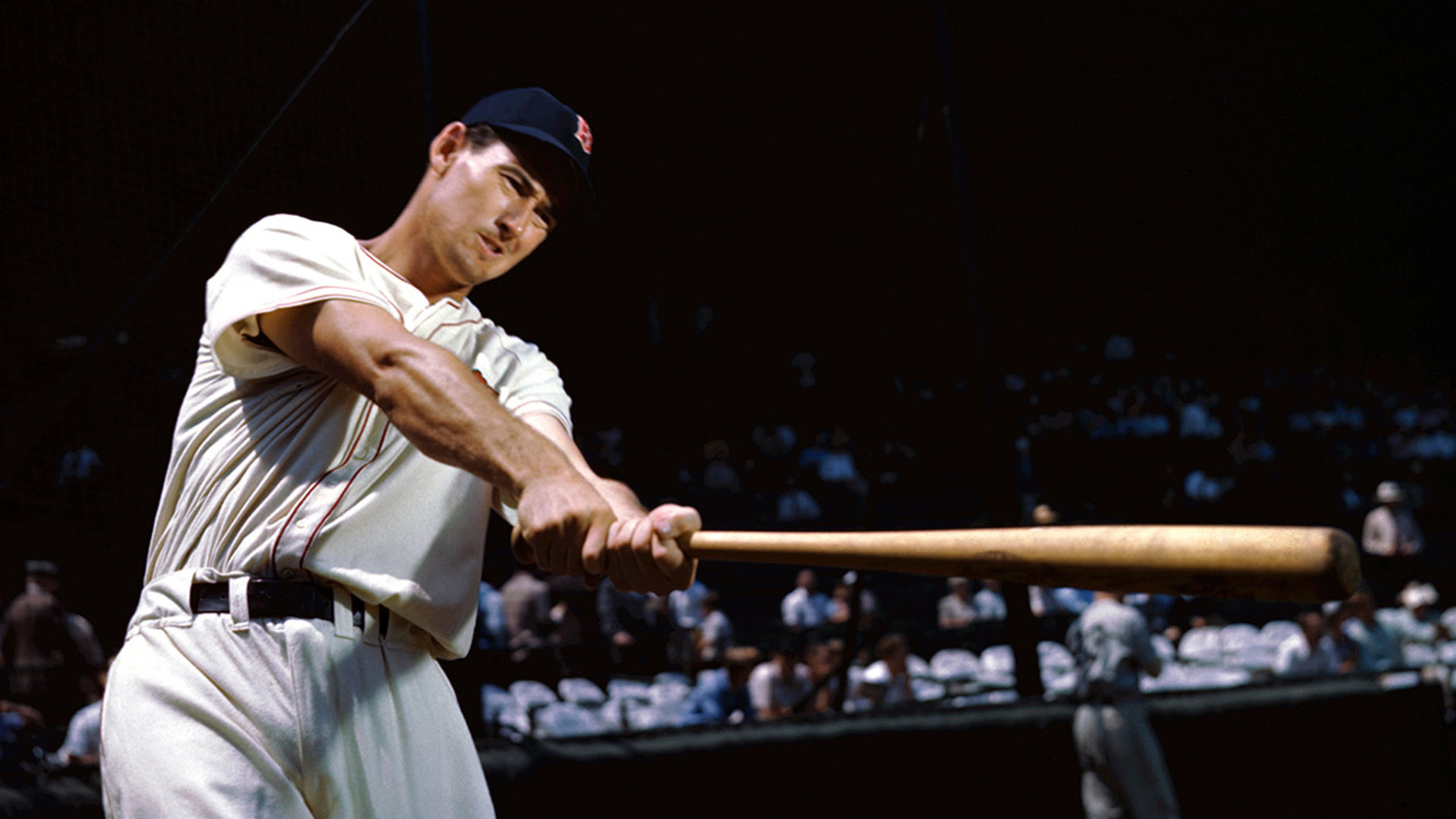November warm fuzzy: You never know when what you say matters:
Nov 09, 2021
You won’t find the name Eddie Mifflin in the baseball record books, but the little known baseball fan played a starring role in the creation of one of the sport’s most legendary storylines. And CONGRATULATIONS to our WORLD SERIES WINNING BRAVES!!!!!!Was he the most important and influential baseball fan in history? I’ll let you decide… The story begins in a Baltimore train station when Ted Williams was approached by a stranger. “You’re Ted Williams, right?” the fan asked.
“Yes.” “Are you really planning to retire when this season is over?” Now, at the time, Williams was about to turn 36 years old. He had missed most of the 1952 and 1953 seasons serving in Korea. As recounted by Mike Shatzkin, Ted’s life at that time had very clear personal preferences for Ted: “No weddings, no funerals, no ball games.” It was in the middle of that season that the fan asked the Splendid Splinter about retirement in the train station. “Well, you better not retire if you want to make the Hall of Fame on the first ballot,” said the fan. "The writers vote for the Hall of Fame and they hate your guts. And your numbers just aren’t good enough. If you quit after this year, you’ll never make it on the first ballot.” Since Williams had hit well over .300 in every season he’d played, and hit with power from the very beginning, he was skeptical.
“What do you mean my numbers aren’t good enough?”
“You missed too much time fighting in the wars. Your lifetime totals just don’t cut it.”
Williams’s curiosity was piqued. He arranged to meet the fan again soon in New York. They stayed up all night talking. At the end of the session, Williams said, “Okay, what do I have to do?” “You have to hit 500 home runs. If you do that, they can’t possibly keep you out of the Hall of Fame. They’ll have to put you in on the first ballot.” At that time, only Babe Ruth, Jimmy Foxx, and Mel Ott had hit 500 home runs in all of baseball history. Lou Gehrig was 4th on the all-time list with 493 home runs. At the end of the 1954 season, Williams had 366. The following spring, he was divorced, reported late, and started the season late. But his pledge to retire had been forgotten and he kept right on hitting.
And his new friend kept in touch with him, kept encouraging him, and kept tracking how Williams was doing against the lifetime records that had been posted before him. Williams hit .356 in 1955 and .345 in 1956. In 1957, the season in which he turned 39, that .388 average won the batting championship by more than 20 points over Mickey Mantle’s career-best .365. But age caught up with him in 1959. He had a painful pinched nerve in his neck that hampered him all year and, for the first time, his average fell below .300. He only hit .254. But he finished the year with 492 home runs, one behind Gehrig, eight short of 500. That meant just one thing: He couldn’t retire.
So he volunteered for a pay cut and came back for a final year in 1960.
And in that final season, Ted Williams climbed back above .300. More importantly for his legacy, he hit 29 home runs, bringing his career total to 521. And in one of the greatest moments of poetic justice in baseball history, Ted Williams even slugged a home run on his very last at-bat as a major leaguer.
Five years later, after the mandatory waiting period was over, Williams was elected to the Hall of Fame on the first ballot.
And you won’t find the name Eddie Mifflin on the Splendid Splinter’s plaque in Cooperstown, nor was he mentioned in Ted’s very short acceptance speech.
But make no mistake: There might never have been a plaque in Cooperstown, Ohio bearing the name of Theodore Samuel Williams if it wasn’t for a chance meeting in a train station one day with Edward B. Mifflin.
|
||
 |
Mike Stott Donna Stott Jon Burke
"Our Family Serving Your Family" Northwest Atlanta Properties (Mike) 678-232-0927 (Donna) 678-477-4897 (Jon) 770-845-4149 (Office) 770-726-1454
www. [email protected] Donna. |
 |


